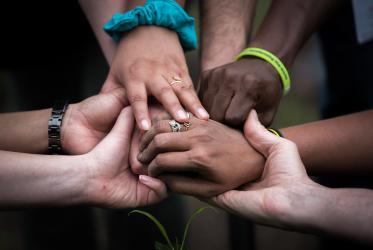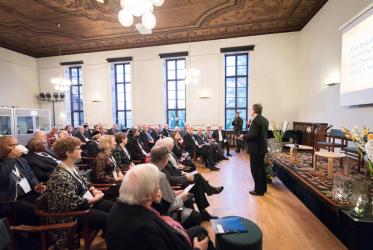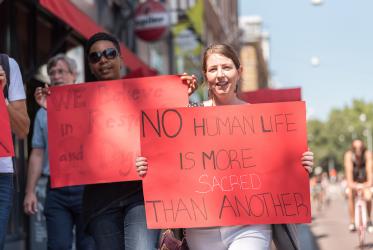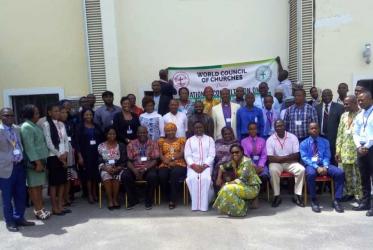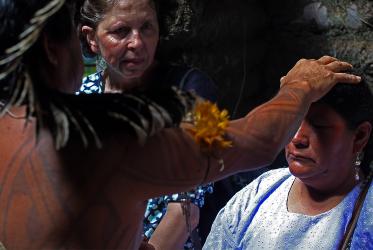Displaying 41 - 60 of 120
Christian communicators work to counter hate speech against refugees
10 December 2018
US Catholic bishops approve pastoral letter against racism
19 November 2018
WCC Executive Committee envisions future for one ecumenical movement
08 November 2018
WCC executive committee tackles public issues
07 November 2018
WCC supports UN petition from French Polynesia
07 November 2018
#WCC70: A prayer about health and healing
20 July 2018
Konrad Raiser shares ecumenical journey of transformation
06 February 2018
#WCC70: A story of how we meet together
02 February 2018





